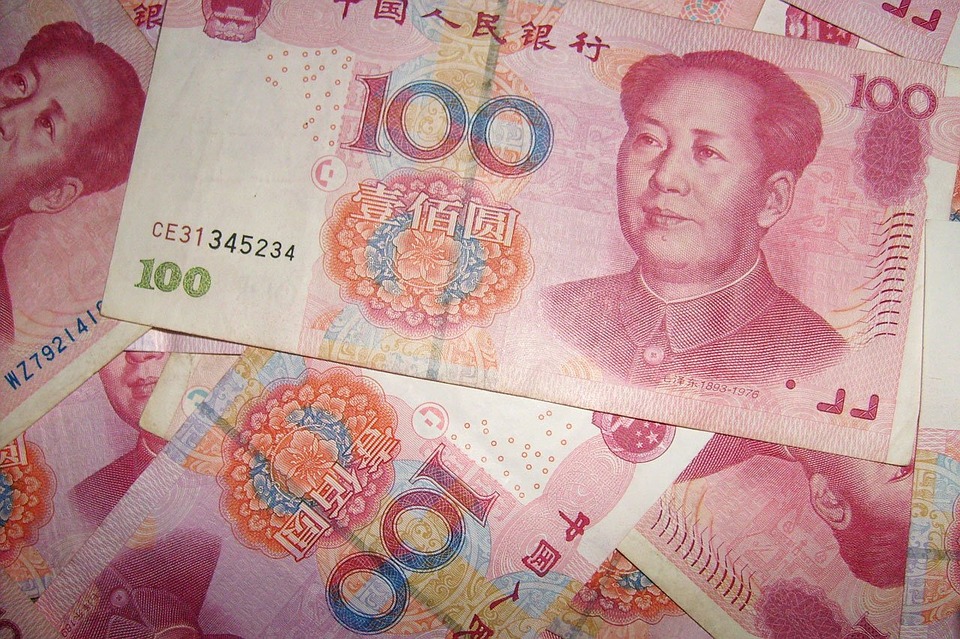China’s economy is slowing. China reported that its economy grew at a rate of 6.6% in 2018, whether this number is genuine or inflated, it is still its slowest reported growth since 1990. However, while that is a far cry from its highest growth rate of 15.4% in 1993, it is still one of the highest rates in the world. No country can maintain a breakneck pace like China’s forever, and its economy is slowing down and beginning to mature as people expected. Even if we leave out the current trade war with the USA, there lies an argument pertaining to whether this slowdown, compounded with the two key issues facing China’s economy: its real estate market and its debt load, has the capacity to create enduring damage to its economy that spills in to the global markets.
China’s real estate market, which has been one of the major pillars of its economy, is looking poised for a recession this year. Real estate in China has long been used by the government as a job creating mechanism, employing citizens, increasing demands for resources and generating cash. While this created a positive economic stimulus, it has created a negative aftereffect, as buildings lay empty in many smaller cities across the country. China has tried to continuously build new homes as a way to stimulate investments and create the effect of home values appreciating, but housing demands have cooled, and production has surpassed the demand, even causing some developers to slash prices in an effort to sell properties.
At the moment, in major cities like Shanghai or Guangzhou the price-to-income ratio, or the number of years someone would have to work to afford a home without spending, is currently around 26:1 (average 9:1) more than double the U.S. where it tops out at 10:1 (average 3:1). However, if housing prices across the country start to fall as predicted, it could have a drastic effect on the economy, as indebted property builders will not be able to pay their debts for these properties and will be forced to pay steep interest rates. The IMF even published in a recent report that “a crisis in China’s housing market would be of considerable global concern.” China can’t afford for a major part of its economy to falter at a time when it is fighting a trade war and it is falling under an ever-increasing debt stockpile.
But the straw that will most likely break China’s economic back is its massive burden of public and private debt. While the USA reaching $22 trillion in debt has gotten people worried, China has blown by that number, piling up a staggering $34 trillion in debt. While taking on debt is necessary to grow and transform an economy, especially at such a pace of China’s over the past 20 years, it is now estimated that its debt has reached over 310% of its GDP. China’s problem is to find a method to reduce its economy’s reliance on debt-fueled growth without slowing down the economy even more than it already is.
While the government does hold tight controls over its capital flows and banks, its ability to try to manipulate its financial system to attempt to contain its debt burden and limit its risk of a financial crisis may not be enough in this case. Whereas the government has been implementing stimulus package after stimulus package to try and minimize their companies’ reliance on debt and stimulate the economy, it’s not possible to continue these attempts without further affecting the markets negatively. China’s debt load faces more risks than other countries due to the fact that the government is in the position of it being both a lender and borrower, through its many state-owned companies, which concentrates its risks rather then diffusing them.
One of the major issues of relying on debt-fueled growth is that capital is often misallocated, meaning the government ends up creating worthless assets like empty cities, factories that don’t manufacture anything or state-owned enterprises that do nothing. These useless assets have a higher chance of defaulting on loans causing a serious drain on China’s economy. However, dealing with this issue will weigh on China’s growth, because if the government writes off loans it will end up dragging down the country’s GDP. Doing this would end up lowering growth for a few years, which is why this issue has continued to remain unaddressed, even if it has a high importance.
China’s economy has been a driver for global growth and the beginning of its economic slowdown is starting to spread concern around the world. China is showing many of the same signs the USA was before its own financial crisis in 2007-2009, with a housing market bubble and a substantial amount of debt that is unlikely to be repaid. If China’s economy begins to stumble due to either its real estate market faltering or its impending debt pile, or both, reverberations will be felt around the globe. How this slowdown will affect the global economy is an important question, and the answer lies in whether the economy slows down to just a growth recession or snowballs into a financial crisis.
A growth recession would certainly be felt in the Asia-Pacific, but most major economies would be able to continue on relatively unscathed. While many countries are reliant on China’s cheap exports, their slowdown shouldn’t be too much of a concern to economies outside of Asia, as production should continue somewhat close to normal. As China is the second largest importer in the world, some countries will suffer a setback do to lack of demand, but it will most likely be very minimal. This growth recession will mostly affect China’s labour force because the economy is struggling to create enough new jobs for the high number of people joining the labour market every year. This is especially problematic as China has to continually create a massive amounts of new jobs, as 15 million workers, including 8 million university graduates, enter the workforce every year.
A financial crisis, on the other hand would be felt across the global economy. Many major economies like Canada, France, Italy and the United Kingdom have been facing periods of stagnating or falling growth rates over the last five years and this could be a tipping point. If you add in Britain crashing out of the EU and the possibility of a crisis in Italy, it will compound the affect China’s slowdown will have on the global economy. Nothing on the scale of the 2008 financial crisis is expected, as the USA’s economy was more intertwined with major developed economies than China, but it could still have lasting effects on the Asia-Pacific and beyond.
The hope that China will face just a minor growth recession and doesn’t end up in a financial crisis is one shared both inside and outside the nation. While China has been trying its best to stem the bleeding and push growth while keeping the slowdown out of their minds, it has not been successful. Chinese businesses and government need to focus on preparing for their impending slowdown in a way that damage is minimized both inside and outside the country’s borders. No matter what Chinese officials believe, their economy’s decades long streak of explosive growth cannot be sustainable in the long term. They have to start being comfortable with sub 6% growth levels, something which is a big point in the leading party’s ideology. China’s growth numbers will be slowed by a recession and pushed down even further by a financial crisis, so it seems for China’s “growth rate obsessed” officials it would be in their collective best interest to get moving on their damage control. How much they work to stem the bleeding and the effects it has on their economy, and on the world in turn, remains to be seen.
Featured Image: Chinese Yuan. Via Pixabay.com
Disclaimer: Any views or opinions expressed in articles are solely those of the authors and do not necessarily represent the views of the NATO Association of Canada.




